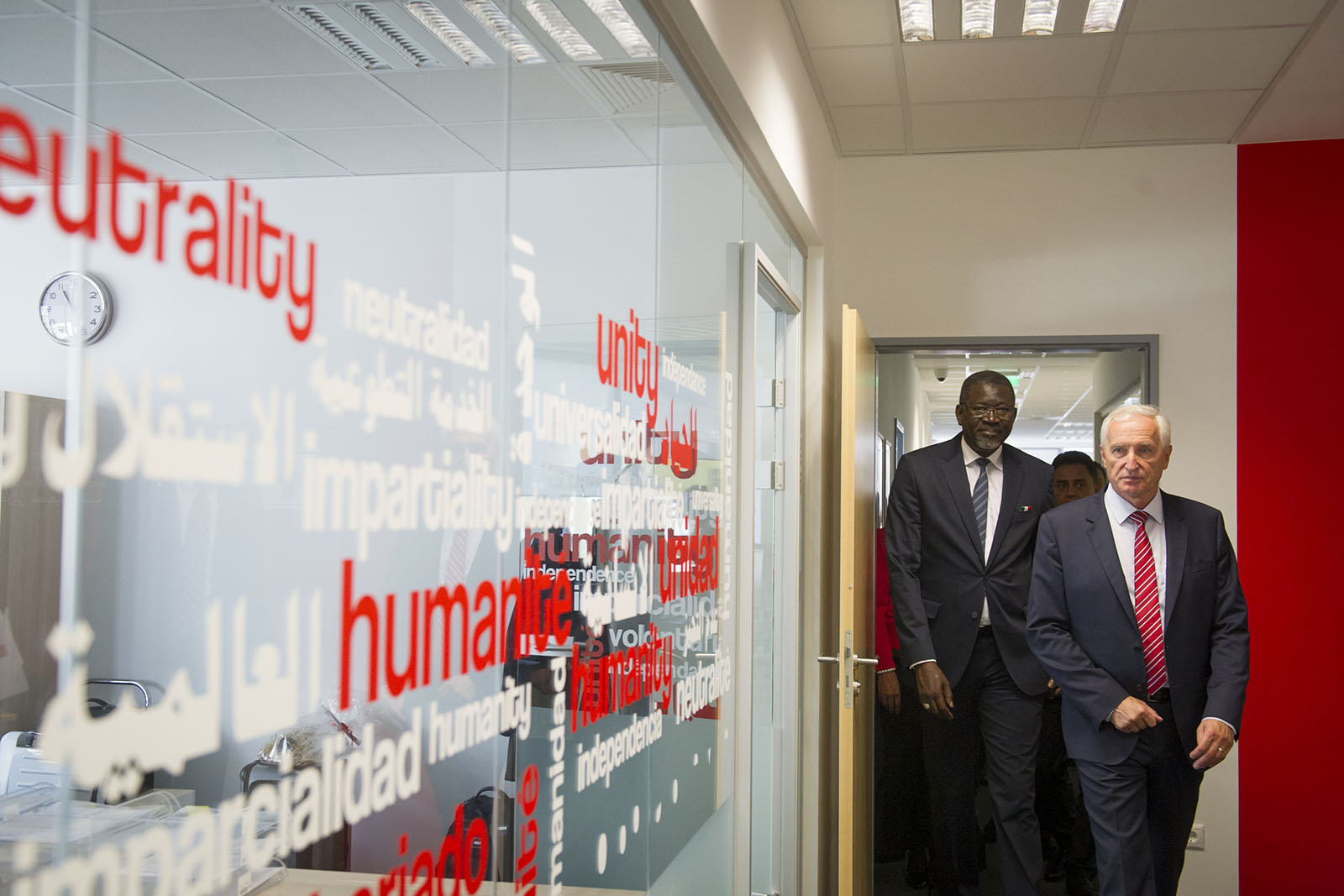During disasters, people can have very different experiences, capacities, and different levels of power in decisions that affect them. A person’s sex, gender or racial identity, age, physical ability, nationality, and many other factors can increase the risks they face, and how they are affected by disasters, conflicts, and crises. These factors can also affect how they respond and recover.
Protection, Gender and Inclusion (PGI) describes the IFRC’s approach and way of working to addressing causes, risks and consequences of violence, discrimination and exclusion in an integrated way. “Protection” and “Inclusion” refer to specific actions taken to directly mitigate and eliminate the various risks people are facing and to meet the different needs they have in this regard. “Gender and diversity” refer to gender intersecting with a multitude of factors we must consider and understand to effectively protect and include different people.
We aim to strengthen inclusive structures and mechanisms in our offices and teams with equitable opportunities for people of all gender identities, backgrounds, physical appearances and disabilities.

Our PGI work, is guided by IFRC's Strategy 2030 is firmly rooted in the right, agency and action of people to drive change for themselves, for their communities, and for the world. We take a systems approach, recognizing the interconnectedness of all aspects of work, and devoting particular attention to people who are vulnerable, excluded, or marginalised.
The importance of the PGI approach in facing current and future humanitarian challenges and needs is highlighted through the IFRC strategic priority five: Values, Power and Inclusion, and the crucial enablers: Trust, Accountability and Engagement, as set out in Strategy 2030 and the Secretariat’s Agenda for Renewal.
For the IFRC to remain true to our principles, we must ensure we reach all people effectively and in a non-discriminatory and equitable manner. Our work must ensure doing no harm while also supporting dignity, access, participation, and safety for all people affected by disasters and crises.
IFRC PGI works through emergency response and longterm programming with a team of country focal points, regional and country-cluster staff around the world. We work closely with Red Cross and Red Crescent National Societies, to ensure our efforts are driven by local and national contexts and to ensure that our Network is safe and inclusive for all.
At the heart of the PGI approach is an analysis of how each individual is affected differently by shocks and crises. We respond to these shocks by jointly addressing risks of violence, discrimination, and exclusion.
We also run specialized programmes that put in place dedicated and tailor-made measures aiming to protect and address risks, and carrying out social inclusion initiatives for marginalized groups.



